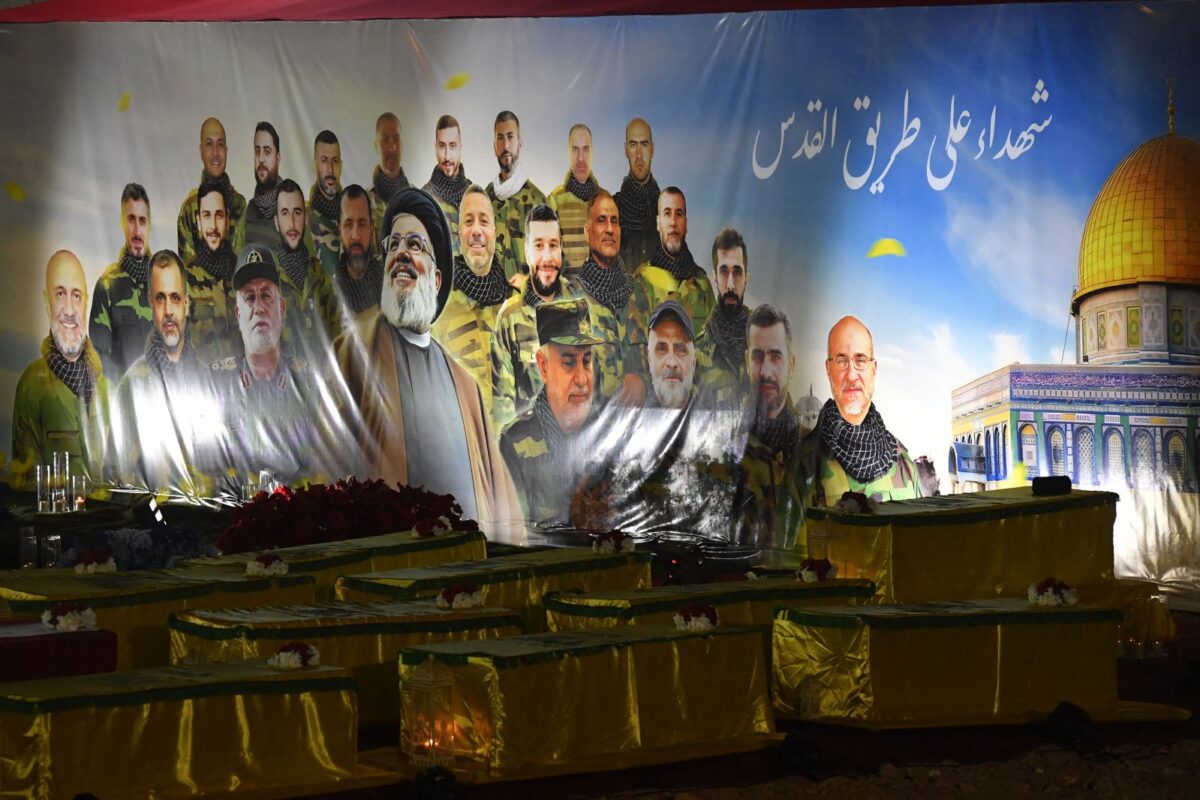
Two years after Israel began its onslaught on Gaza, Hezbollah's involvement in the conflict has ultimately resulted in a new balance of power
Lebanon stands at a crossroads. Israeli attacks after October 7 have eroded Hezbollah’s power, and while a new government seeks stability, both Israeli pressures and divisions intensify.
National unity in Lebanon is elusive, complicated further by continued Israeli strikes. In the South of the country, Shia communities bear the brunt of the attacks. They say that the “Resistance”, meaning the militia group Hezbollah. Handed over the responsibility to the government after the ceasefire.
After the assassination of its long-term leader Hassan Nasrallah, and the spate of other Israeli strikes targeting its ranks and militia infrastructure, it is not the power it once was.
The Lebanese government, elected in January, is intent on disarming the group, but Hezbollah has vowed to continue its resistance against Israel.
While the Lebanese armed forces have made strides in dismantling Hezbollah’s control in Southern Lebanon, the group and many of its followers believe it should keep its weapons.
In Lebanon, the current coalition government now sees an opportunity to consolidate its authority but some warn that moving too quickly could spark civil unrest in what remains a deeply sectarian society.
The handover of weapons came in, but full disarmament hasn’t
The handover of weapons inside Palestinian camps in Lebanon marked a first step in the government’s efforts to impose its security authority and confine all arms to the Lebanese state after the Israel-Hezbollah war in Lebanon.
Various kinds of arms, rockets, shells and ammunition were deposited as a trust-building measure after the Lebanese government and the Palestinian president in May made an agreement.
Israel still maintains control over five sites in Southern Lebanon and is demanding the full implementation of the ceasefire agreement’s terms before withdrawing from them.
Hezbollah’s leader Naim Qassem rejected the Lebanese government’s decision to disarm the Iran-backed militant group and said that Lebanon’s sovereignty can only be achieved by ending Israeli aggression whilst he called the order the proposal a “US-Israeli order”.
Lebanon, still grappling with its own troubles, was still navigating a series of political, economic and social crises. Now the fragile country is facing setbacks from a devastating war which has caused widespread destruction and has had devastating consequences.
October 7, 2025 – Lebanon still faced many daunting questions
Lebanon is looking for a stable political landscape that ensures security and addresses social and economic hardships.
Countless innocent lives have been taken and many have suffered devastating injuries. Thousands of families have lost their homes and means of living whilst many are mourning the loss of their loved ones.
People from across parts of Lebanon have been forced to flee their homes, with some data suggesting that up to 1.2 million may be displaced and at least 2,119 have been killed and 10,019 injured.
Residential buildings, hospitals and key roads have been destroyed and firefighters and first responders have been targeted.
Its deep consequences are still felt in Lebanon, like a political, security, and social explosion that has re-tested the country’s fragile balance and exposed the depth of division over the meaning of “the resistance” and the limits of state authority.
The country is entering its third year still living in the shadow of an unfinished war. Lebanon remains in a constant state of political and military tension and this is reshaping the role of the state in a place that has never known lasting stability away from regional conflicts.
Under a ceasefire agreement Israel was supposed to withdraw from the area in January but the military has recently expanded its presence stating that the militant group Hezbollah was in violation of the terms and an active threat.
Ali Kteich , a farmer and a bulldozer driver from Houla whose house has been reduced to a pile of rubble, told NOW: “A third of Houla’s agricultural land remains inaccessible due to the IDF’s presence in Houla. We can’t move away from our lands because it is simply our source of living.”
“The IDF has killed five civilians as they tried to reach their lands, they want this village to become a buffer zone because if they target one person the others will not try to come back.”
Border villages in the south of Lebanon have been reduced to ruins and almost like ghost towns, meanwhile Israel has committed nearly daily violations, and according to residents from border villages, the IDF do not want any of the villagers to do reconstruction.
Speaking to NOW on the condition that only her first name be used, Fatema, a resident of Kfrakela, said: “Lebanon shouldn’t have to carry the burden of its neighbors’ problems anymore. We were unfortunately dragged into this war and have lost so much: our homes, innocent lives, martyrs, and even our dignity. Being displaced and forced to flee with our families strips us of that dignity.”
Psychological impact still apparent
Experts in the psychological field warn that it is crucial not to neglect the war’s profound impact on the population as a whole, especially children.
In Lebanon, many still carry scars from past conflicts, crises and the Beirut port explosion that have caused issues like depression, anxiety and overthinking.
“Lebanese people are constantly on edge, always expecting something to happen but never knowing what their fate will be in such an unpredictable country. Many are also constantly preparing emergency plans, especially after the past year of war,” Caren Shamaa, a psychology graduate, told NOW.
For many, to cope with the current situation, they either have to disconnect their emotions or live on mental health medications.
Rodayna Raydan is a Lebanese-British journalist. You can follow her on Twitter @Rodayna_462
The views in this story reflect those of the author alone and do not necessarily reflect the beliefs of NOW.








